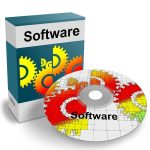AI employees transform business operations by automating routine tasks and delivering tailored support across functions like marketing, customer service, and strategy. These intelligent virtual assistants adapt continuously to brand needs, operate 24/7, and integrate seamlessly with existing tools. Embracing AI staff empowers companies to boost efficiency, reduce overhead, and stay competitive in a fast-evolving marketplace.
Understanding AI Employees and Their Business Impact
AI employees—virtual AI assistants and generative AI agents—are digital workers powered by large language models and deep learning, engineered to independently manage routine business processes. These agents excel at interpreting requests, handling workflows, and adapting to brand specifications, creating a flexible foundation for business automation to discover on Marblism.
Also read : How plm software accelerates sustainable product development
Within 2025’s business landscape, key industries leveraging AI employees span healthcare (for administrative assistance and diagnostic support), finance (streamlining fraud detection and analytics), logistics, HR, and customer service. Well-known providers such as Sintra, Lindy, and Marblism.com showcase diverse, real-world implementations. For example, companies deploy AI assistants to automate inbox management, generate content, improve customer engagement, and optimize recruitment, all without requiring teams to learn advanced technical skills.
AI employees in daily practice transform core business activities:
Also read : Exploring the uk’s role in driving digital innovation across traditional sectors
- Task Automation: Data entry, meeting scheduling, inbox triage, and processing large information volumes occur seamlessly, freeing up staff to focus on strategy.
- Customer Support and Content Creation: AI manages inquiries, provides real-time responses, and composes blog articles or social media posts with consistent brand voice.
- HR and Data Analysis: Screening resumes, coordinating interviews, payroll management, and generating data-driven reports become swifter and less error-prone.
By integrating with tools like Gmail, Slack, Notion, or Salesforce, AI employees establish cohesive workflows across entire organizations, ensuring operational efficiency any time of day.
Benefits, Implementation, and Integration of AI Employees
Operational efficiency, time savings, and cost reduction through AI workforce automation
AI-driven productivity tools are revolutionizing operational efficiency. By automating repetitive tasks—such as data entry, email handling, and social media management—AI workforce automation allows teams to reclaim valuable hours daily. Businesses using AI employee productivity tracking consistently record measurable time savings while leveraging AI-powered virtual employees, which in 2025 are up to 1.x times faster and less expensive than traditional staffing. This reduction in manual effort directly translates to noticeable cost savings for both startups and established enterprises. Vendor AI employee platforms further enable companies to scale without proportional increases in headcount, reducing recruitment expenses and minimizing workload pressures for existing staff.
Seamless integration with popular tools and software ecosystems
AI employee integration with existing teams relies on seamless connections to widely used software. The best AI employee software ensures compatibility with platforms like Google, Gmail, Notion, Outlook, and Salesforce. This supports AI workforce automation that works alongside humans, supporting collaboration and workflow continuity. Digital workplace AI literacy is enhanced, as platforms often require minimal additional training or prompting skills, simplifying AI employee onboarding. AI-driven productivity tools operate smoothly in current environments, reducing friction and supporting efficient automation.
Real-time collaboration, easy onboarding, and management of virtual AI employee teams
AI workplace automation emphasizes real-time collaboration and straightforward onboarding. AI monitoring employee performance is built into most systems, helping managers delegate, monitor, and adjust team workflows with clear analytics. AI employee training programs and support resources promote ongoing improvement. AI employee integration with existing teams strengthens productivity, while platforms offer user-friendly interfaces so that scaling AI-powered virtual employees is achievable for businesses of any size.
Challenges, Ethics, and the Future of AI Employees in the Workforce
AI workforce transformation brings substantial AI impact on job roles, but not without facing resistance and scrutiny over ethical AI employee monitoring. Many organizations adopting AI-driven productivity tools encounter concerns involving AI employee privacy, with both staff and regulators voicing worries about surveillance and data handling by AI employee monitoring regulations.
Deployment of AI-powered virtual employees leads to evolving definitions of responsibility and oversight. The increasing use of AI in HR processes, such as automated recruitment and performance tracking, creates new challenges around transparency and fairness. These issues heighten debates about AI employee replacement ethical debates, especially as AI agents replacing human workers create uncertainty for traditional jobs. Meanwhile, hybrid AI and human employee models are emerging, balancing efficiency with human oversight to tackle both productivity and ethical obligations.
Legal considerations add further complexity. In 2025, AI employee monitoring regulations are tightening globally, making compliance ever more important in AI workforce solutions. Forward-looking companies are carefully redefining job descriptions and employee engagement strategies to adapt to the future of AI employees while respecting AI employee privacy concerns.









